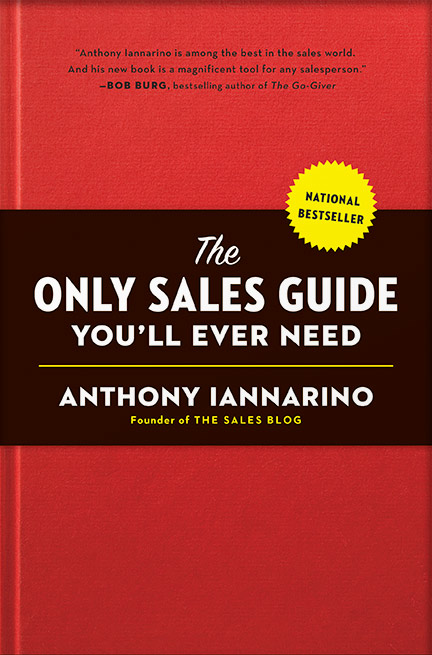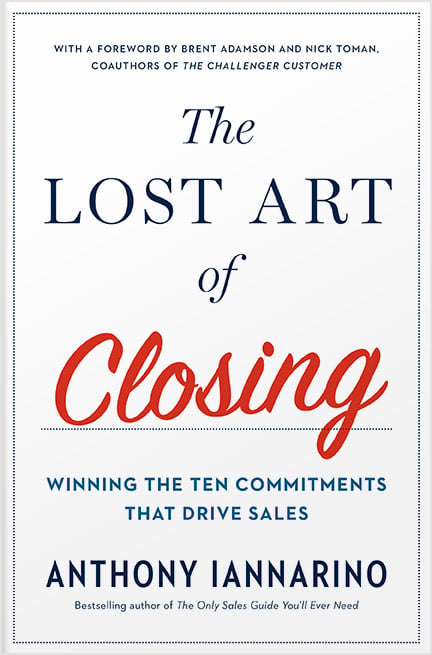The Gist:
- Your contacts may try to skip conversations that would help them pursue the better results they need.
- Because you know what’s necessary, it is important that you prevent the client from making mistakes they could have avoided.
- Helping the client means increasing their willingness to recognize the value of the conversation.
More often than not, your prospective clients will want to skip some of the conversations that are necessary to making a good decision and ensuring they can execute it—regardless of which solution they buy or who they choose as a partner. An example would be a prospect who, after a single discovery call, asks you to send them your pricing and proposal, treating a complex sale as if it were transactional. The conflict-averse, compliant salesperson will do as their prospective client directs them, mistaking what the client wants for what they need, potentially leading to a situation where they skip the process that is critical for making an informed decision.
It’s important to understand why your prospective clients try to circumvent a process that would serve the outcomes of making a good decision, ensuring the right solution and partner, and gaining the necessary commitments from their team. When you know why your prospective clients try to wriggle out of the conversations and commitments, you can improve your ability to help them achieve the outcomes you can deliver by ensuring they don’t skip sales conversations that are vital to their success.


No Knowledge of What’s Necessary
Some percentage of the contacts you call on have never been educated on how they should go about making a good decision, choosing a partner, and ensuring the solution is going to work for them. Likewise, they rarely recognize that success often depends on the commitment of the teams who will have to do the work of executing the solution they decide to buy.
None of us knows what we don’t know, an all-too-human malady that’s especially harmful when making important decisions. Because your contacts don’t buy what you sell as often as you help others buy what they need, you are responsible for explaining why your contacts need to have certain conversations in a certain order. In The Lost Art of Closing: Winning the 10 Commitments That Drive Sales, this is called “controlling the process,” implying that you must lead the client—preventing them from making mistakes that they could avoid with a single conversation.


No Perception of the Value
Not every contact might try to avoid additional meetings because they don’t know what is necessary: they may also be suspicious of sales meetings in general. Our sisters and brothers in sales may have made it more difficult to acquire a contact’s time by having wasted it in the past. The more such value-less meetings a prospective client has endured, the more skeptical they are about spending any time with salespeople.
The general idea of creating value is to make your conversation a valuable experience for your prospective client. Two salespeople selling the exact same outcome can provide two different experiences. For example, one salesperson might not prepare for the meeting, offer no insights about the decision or its context, and waste the client’s time. His competitor might sell the same kind of product, but use the sales conversation to provide insights that obliterate the client’s false assumptions and helps them recognize a new potential decision and the better results it enables.
Value is in the eye of the beholder. Unless the client perceives that spending time with you is a valuable investment, they will be unlikely to agree to repeat the experience. It’s important to recognize that you are in some way paying for the sins of the worst salespeople the client has met with. The good news is that contrasting your approach with those poorly trained salespeople improves how your contacts perceive you.
Creating more value for the client in any meeting increases your chances of acquiring the next commitment and of preventing your prospective client from trying to exit the conversation early.


No Willingness to Invest the Time
People in decision-making roles are generally very busy. Many, if not most, have more work than time, so they often spend too little time on important decisions and conversations, typically because they feel the constant pressure of all the things that are not being addressed.
Another way of approaching “controlling the process” is to sell that process: help the client understand the commitments and conversations necessary to making the best decision for their business, at the very start of your conversation. You might also frame this conversation as “negotiating the process,” since in truth, we do our best work with clients when it’s a collaborative endeavor.
The way you make this “negotiation” easier is by explaining to the client why each conversation is important to the end result they need, followed by the value the conversation generates for them. You also improve your ability to gain the next commitment by ensuring that you do nothing to lower the perception of value you create—and everything to ensure your prospective client leaves every meeting believing it was worth their time.
While it isn’t easy, it is important that you don’t allow your would-be clients to skip the conversations they need in order to make a good decision for their business and their future results. This is a form of malpractice in B2B sales, especially when the decision should not be treated as if it is a transaction. If you want to make it easier to win big deals, treat selling as if you are trying to help the client make a good decision, instead of simply trying to get them to buy what you sell. The person who creates the most value in the process is the one most likely to find themselves with a new client.
Do Good Work:
- What conversations do your clients tend to skip?
- How do you help them recognize the value of the conversations they need?
- What commitments and conversations do you need to enable for your client to make the best decision and achieve their objectives?









.jpg?width=768&height=994&name=salescall-planner-ebook-v3-1-cover%20(1).jpg)


